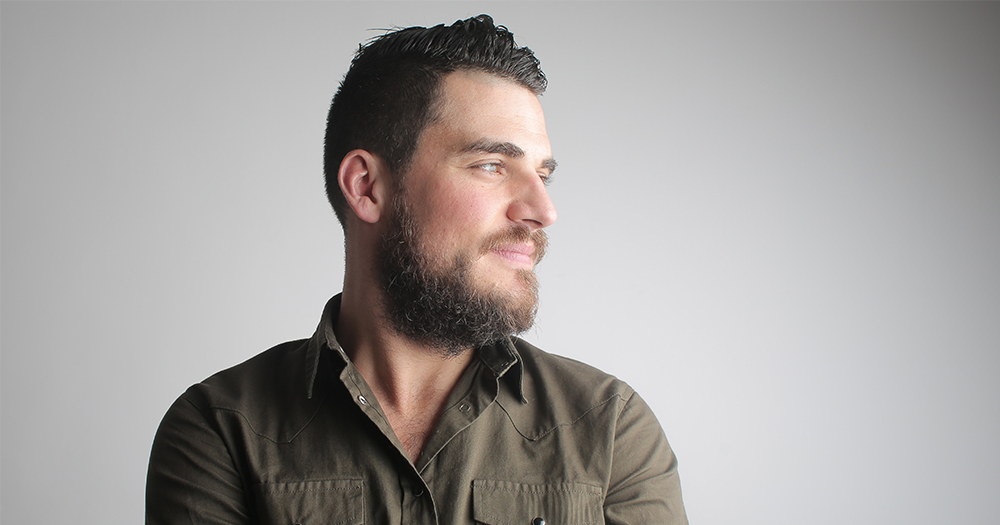Dermot McCarthy is the Treasurer of Sporting Pride Ireland, an active runner with Dublin Frontrunners, and is an IACP accredited therapist with Under The Rainbow. Here he shares his tips to help promote positive mental health during the COVID-19 lockdown.
In 2009, when the global recession hit Ireland, I lost my job as an accountant. I remember as it approached my sixth week of unemployment, anxiety began to surface. Sadly, I continued along that path and fell into the hands of a deep depression. I got myself out of it, and today I am in a position that I love. Therefore, I want to pass on my survival tips to those who, due to COVID-19, may be struggling with their mental health through anxiety, stress and depression.
1. Bedtime
Yes, you may have heard this before. Get into the habit of having a bedtime routine. Ensure you get eight hours sleep. Stay away from social media, like usage of an iPhone at least an hour before you go to bed. Your mind needs to wind down and not up.
2. Meditation
Get into the habit of practising meditation each morning. There are many apps out there to use such as Head Space. I use a YouTube meditation video, 15 minutes each morning. This works for me, find out what works for you. Meditation can be a challenge at the start, but keep at it. Practice makes perfect.
3. Breathing
I recently discovered the Wim Hof breathing method. I practice it every day. I find it amazing and feel very calm afterwards. You can check this out for more info.
4. Exercise
Set yourself some fitness goals. Gyms are closed, but many of them have running classes, like 1 Escape for example. Use the 2k radius to your advantage, incorporate a set time for that walk/jog/run during the week.
5. Nourishment
Get into the habit now of cooking healthy meals. Healthy body equals a healthy mind. Drink plenty of water.
6. Social distancing doesn’t mean you can’t socialise
Use the many digital platforms to keep in contact with friends and family. Organise a family webinar, quiz night, etc. Reach out to friends, do not isolate yourself. Back in 2009, I did, and it’s one of the reasons why depression got a hold of me.
7. Volunteer
For those who lost their job due to COVID-19, I suggest seeking out voluntary work. This was immensely powerful for me when I was unemployed. In fact, when I got a paying job, I did not want to give up my voluntary roles, they were so rewarding. Check out this website for examples of volunteer roles.
8. Tips on working from home
For those now working from home, ensure there’s no cross over between home life and work life. One of the simplest methods that I use, is when I am working, I wear the same clothes that I would when working in the offline world. This gives me the mindset ‘I am working now’, then when the working day is done, I change back into my casual wear. But wear casual clothes Friday, to maintain that Friday feeling!
9. TV programmes
Select programmes that boost your wellbeing. I stay away from negativity. One of the shows , which I would recommend is Operation Transformation-Keeping Well Apart. I find this an excellent show, with plenty of tips for exercise, food and minding your mental health. It is on RTE1 on Wednesdays at 9.35pm.
10. Social media
Use social media more positively. For instance, many in the entertainment business have gone online and give interesting Instagram talks. Check them out to be entertained.
11. Online courses
An online course that I would recommend everyone to do, is one run by Stress Control. The course is starting again this May, dates to be confirmed. It is a free six-module course about dealing with stress and anxiety. Check out stresscontrol.org for further details. Check out also www.udemy.com for other courses to keep you learning.
12. GPs and online therapy
If the situation gets too much to bear, there is no shame in reaching out for support concerning your mental health. Talk to your GP, reach out to a therapist – many provide online counselling now. In 2009, I did talk to my GP and found a therapist, these two actions saved my life. This is an unprecedented time that we are all in. The future is unknown for now but incorporating some of the tips, that I have outlined above will help you ease the bumpy emotional ride that is ahead of us all.
Be Safe.
© 2020 GCN (Gay Community News). All rights reserved.
Support GCN
GCN is a free, vital resource for Ireland’s LGBTQ+ community since 1988.
GCN is a trading name of National LGBT Federation CLG, a registered charity - Charity Number: 20034580.
GCN relies on the generous support of the community and allies to sustain the crucial work that we do. Producing GCN is costly, and, in an industry which has been hugely impacted by rising costs, we need your support to help sustain and grow this vital resource.
Supporting GCN for as little as €1.99 per month will help us continue our work as Ireland’s free, independent LGBTQ+ media.
